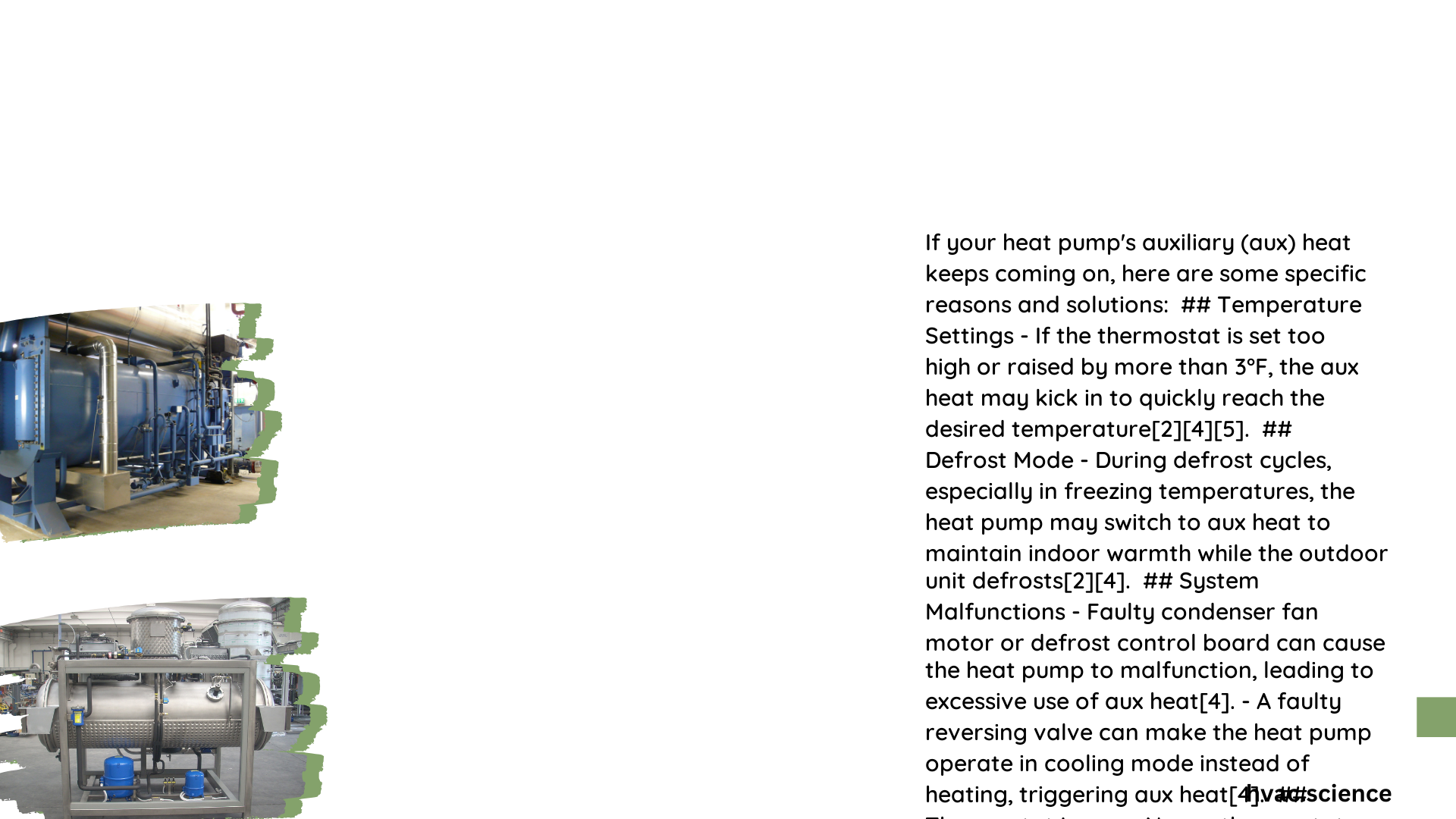Heat pump auxiliary heat activation is a common issue that can lead to increased energy consumption and higher utility bills. This problem occurs when the backup heating system engages more frequently than necessary, often due to factors such as extreme cold, system inefficiencies, or thermostat settings. Understanding the causes and implementing proper solutions can help homeowners maintain optimal heat pump performance and reduce energy costs.
Why Does My Heat Pump Aux Heat Keep Coming On?
The auxiliary heat in a heat pump system is designed to provide supplemental heating when the primary heat pump cannot meet the heating demand. However, if it activates too frequently, it can indicate underlying issues or inefficiencies. Here are some common reasons why your heat pump’s auxiliary heat might keep coming on:
-
Extremely Cold Temperatures: When outdoor temperatures drop below 35-40°F, heat pumps struggle to extract sufficient heat from the air, triggering the auxiliary heat.
-
Large Temperature Differential: If the indoor temperature falls 3°F or more below the thermostat setting, the aux heat may activate to quickly raise the temperature.
-
Defrost Mode: During defrost cycles, the heat pump temporarily switches to cooling mode, activating aux heat to maintain indoor comfort.
-
System Inefficiencies: Poor maintenance, low refrigerant levels, or aging equipment can reduce the heat pump’s efficiency, causing more frequent aux heat use.
-
Incorrect Thermostat Settings: Improper settings or a malfunctioning thermostat can lead to unnecessary aux heat activation.
How Can I Troubleshoot Frequent Aux Heat Activation?

If you’re experiencing frequent aux heat activation, follow these steps to diagnose and potentially resolve the issue:
- Check thermostat settings
- Inspect system maintenance status
- Verify outdoor temperature
- Observe defrost cycle frequency
- Evaluate home insulation and air leaks
- Use diagnostic tools if available
- Consult an HVAC professional if problems persist
What Are the Best Practices to Minimize Aux Heat Usage?
To reduce reliance on auxiliary heat and improve overall system efficiency, consider implementing these best practices:
- Set your thermostat to a consistent, moderate temperature (62-68°F)
- Improve home insulation and seal air leaks
- Schedule regular heat pump maintenance
- Upgrade to a high-efficiency heat pump system if your current unit is old or inefficient
How Does Frequent Aux Heat Activation Affect Energy Costs?
Frequent activation of auxiliary heat can significantly impact your energy costs and system performance:
| Factor | Impact |
|---|---|
| Energy Consumption | Increases due to less efficient electric resistance heating |
| Utility Bills | Higher costs, especially during colder months |
| System Lifespan | Potential reduction due to increased wear and tear |
| Long-term Expenses | Higher maintenance and replacement costs over time |
What Are the Key Components of a Heat Pump System?
Understanding the key components of a heat pump system can help you better manage and maintain your heating setup:
- Outdoor Unit: Contains the compressor and condenser coil
- Indoor Unit: Houses the air handler and evaporator coil
- Refrigerant Lines: Connect indoor and outdoor units
- Thermostat: Controls system operation and temperature settings
- Auxiliary Heating Elements: Provide supplemental heat when needed
When Should I Call a Professional for Heat Pump Issues?
While some troubleshooting can be done by homeowners, certain situations warrant professional attention:
- Persistent aux heat activation despite basic troubleshooting
- Unusual noises or odors from the system
- Significant increases in energy bills without explanation
- Frequent system cycling or short-running times
- Ice buildup on the outdoor unit outside of normal defrost cycles
By addressing the issue of frequent auxiliary heat activation, you can ensure your heat pump system operates efficiently, maintains comfort, and keeps energy costs in check. Regular maintenance and proper system management are key to avoiding unnecessary aux heat usage and prolonging the life of your heat pump.
